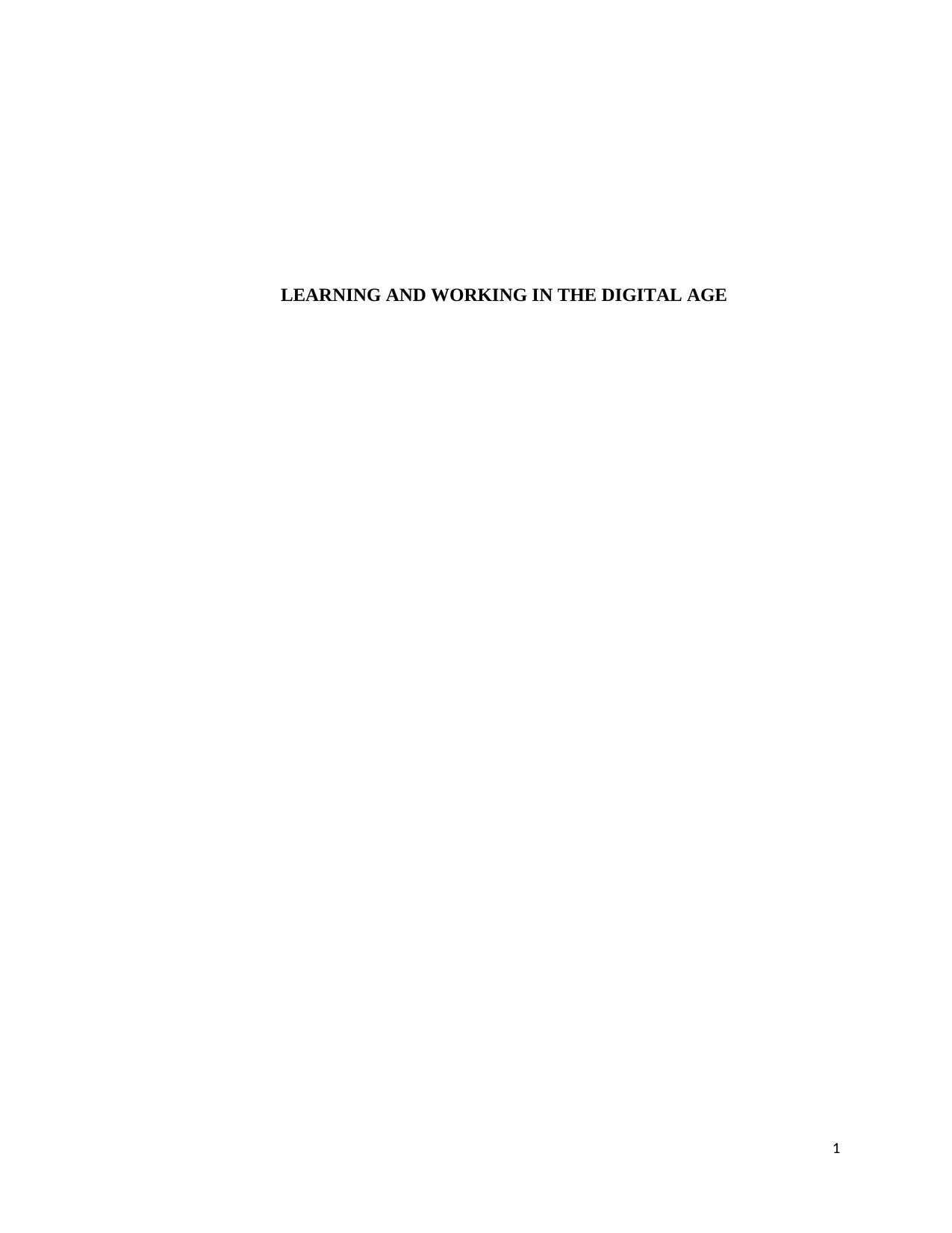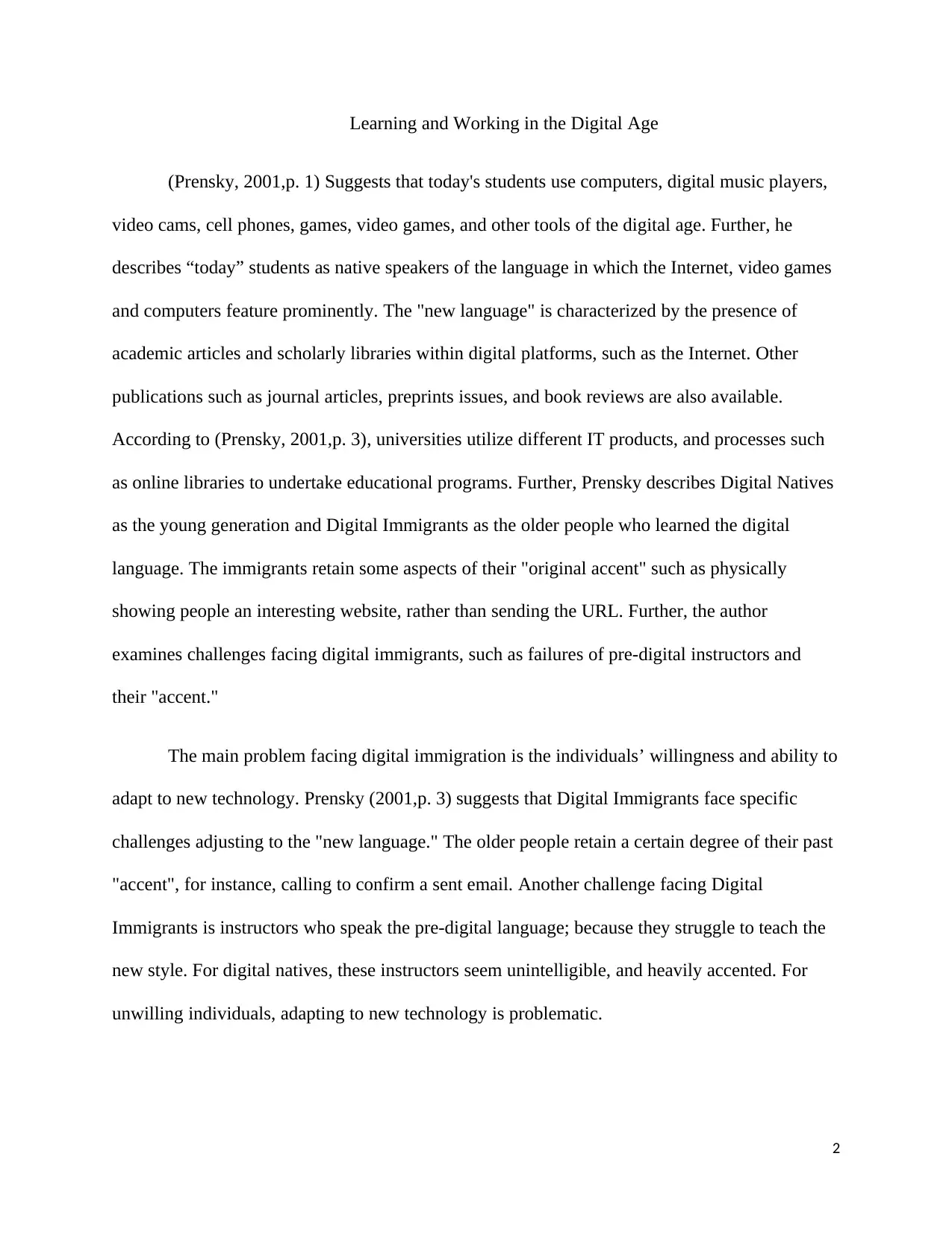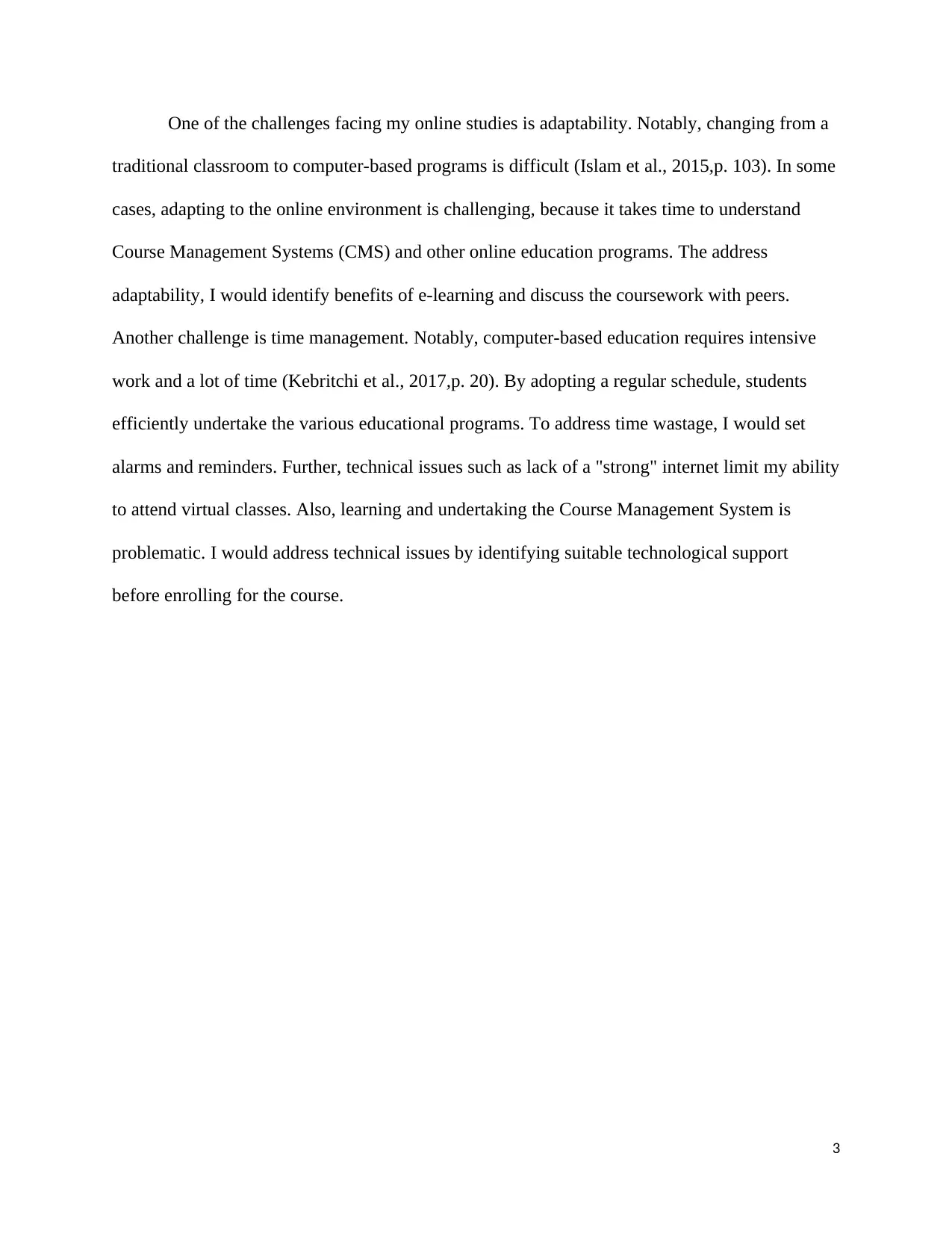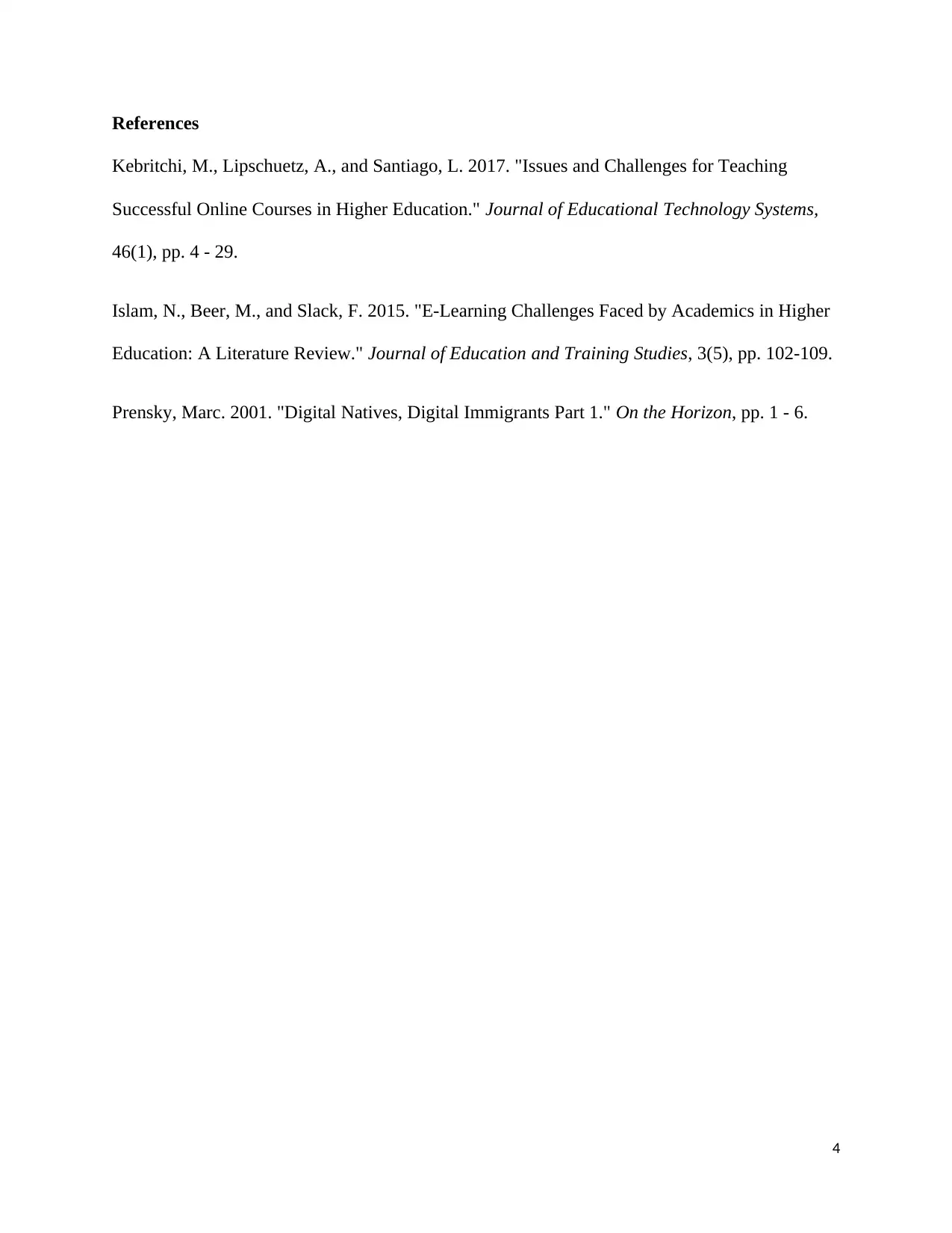Report on Challenges and Solutions in Digital Age Learning
VerifiedAdded on 2021/04/17
|4
|638
|42
Report
AI Summary
This report explores the challenges and opportunities associated with learning in the digital age, drawing on concepts from Prensky (2001) and other academic sources. It distinguishes between 'Digital Natives' and 'Digital Immigrants,' highlighting the different experiences and challenges they face in the context of online education. The report examines issues such as adaptability to new technologies and the challenges of time management in a computer-based learning environment. It also addresses technical difficulties, such as internet access and familiarity with Course Management Systems (CMS). Solutions are proposed, including strategies for adapting to the online environment, effective time management techniques, and seeking technical support. The report emphasizes the importance of understanding and overcoming these challenges to succeed in digital learning environments. The provided references, including Kebritchi et al. (2017) and Islam et al. (2015), support the arguments made and provide additional context to the challenges faced by both students and educators in higher education. The report highlights the importance of adaptability and effective strategies for navigating the digital learning landscape.
1 out of 4







![[object Object]](/_next/static/media/star-bottom.7253800d.svg)